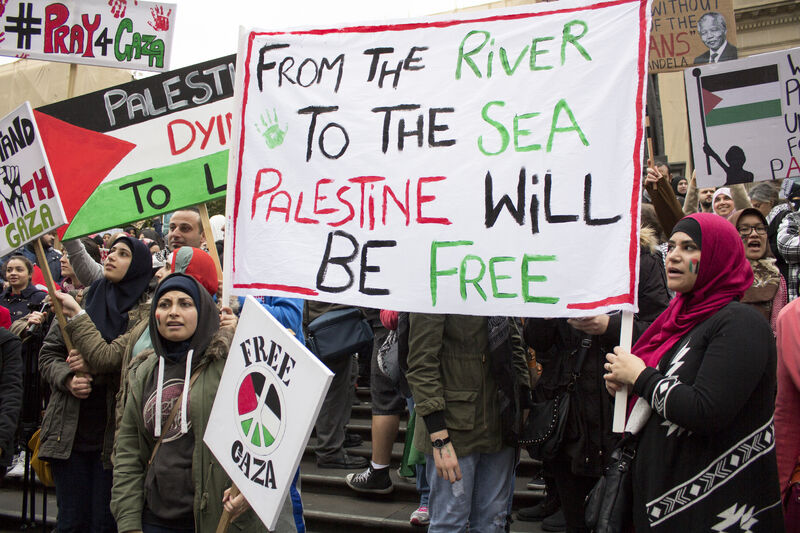
The narrative catching fire around the world is disturbingly one-sided: maintaining the focus on Gaza’s plight only when it can be pinned on Israeli actions. After October 07, many private supporters of Israel suddenly turned into outspoken anti-Israel advocates on social media. A status quo fraught with challenges, not the least of which is the painful experience of losing friends.
By Ken van Ierlant
This path inevitably highlights that many who once were close would rather see you demonised in the narratives of Hamas than hear you speak for peaceful coexistence.
Prevalent social media campaigns like “All Eyes on Rafah” glaringly ignore the atrocities committed by Hamas, the brutal attacks of October 7, and the genuine suffering of hostages. Instead, they propagate a selective outrage that sees the Gazan population only as victims of Israeli actions, conveniently overlooking nearly 20 years of subjugation under Hamas’s rule.
In theory, “All Eyes on Raffah” should not be taken as antisemitic. However, prior actions – or lack thereof – give away the underlying intention behind sharing this image as a person’s first and only contribution to the narrative.
Friends who have been silent for the past six months have now decided to take a plunge into the conflict with this campaign, showing a unilateral sympathy for Palestinians in Rafah. It’s an expression of importance that nothing had been relevant enough for them to partake in activism until now. The images of the Supernova music festival, of young girls facing sexual slavery or remaining hostages in terror tunnels, were not enough.
What are we – those who have been sharing daily news, stories, and images about the Hamas atrocities – supposed to believe? That our followers selectively fail to see our posts, or that Jewish suffering does not matter? The disheartening reality is that most of your “friends” would prefer to see the dehumanising image of your face battered in a Hamas propaganda video over your efforts to promote peace.
The narrative is disturbingly one-sided, maintaining the focus on Gaza’s plight only when it can be pinned on Israeli actions. This selective concern implies that the suffering of Gazan women and children is only significant when a Jewish threat is involved. It glosses over the reality that Hamas uses these civilians as human shields or that they turn schools, mosques, and hospitals into military quarters.
Western support for Hamas
All of the so-called atrocities committed by Israel in this war, such as the Al-Ahli Hospital bombing, the Shifa rapes, and the Gaza famine, have been disproved as Hamas propaganda. Yet the willingness of people in the West to believe Hamas, a designated terrorist group, over the democratic Jewish state persists.
Why? This ties into the historical myth of the “lying Jew,” a conspiracy theory seen in traditional antisemitism, racial antisemitism, and now far-left Islamist antisemitism. Like its conspiratorial siblings of blood libel, world domination, and control of the banks, the idea of the lying Jew is as old as modern civilisation.

In revisiting Martin Luther’s 1543 diatribe “On the Jews and Their Lies,” we see that the essence of antisemitism remains unchanged, even as its manifestations adapt to the times.
Luther’s words, condemning Jews for their alleged deceit, could easily be repurposed for today’s rhetoric: “Therefore be on your guard against the Jews, knowing that wherever they have their synagogues, nothing is found but a den of devils in which lie sheer self-glory, conceit, lies, blasphemy, and defaming of God.”
Fast forwarding a few hundred years, we find this exact sentiment in Hitler’s Mein Kampf, in which he pleads: “The ignorance of the broad masses about the inner nature of the Jew, the lack of instinct and narrow-mindedness of our upper classes, make the people an easy victim for this Jewish campaign of lies.”
These quotes are to say “wake up” to the reality of what the Jews are doing – and in the West if you substitute “Jewish” for “Zionist,” you can stay “woke.” You can have the rallying cry for the next pro-Hamas march in New York or London.
The silence and justification of Hamas’s genocidal campaign suggests an unsettling endorsement of these tactics as long as the “Israeli problem” is addressed. And by “addressed” they mean “eradicated.” In 2024, the very existence of Israel – the ultimate embodiment of Judaism and the Jewish people – is painted as a crime.
The failure to recognise and call out this double standard is not just about losing friends; it’s about the broader societal acquiescence to antisemitism cloaked in the guise of political activism. The silence on the part of so many is a tacit approval of an ideology that has not evolved, only donned new attire to fit the 21st century.
Standing up as an advocate for Israel means confronting these uncomfortable truths. It means refusing to let the narrative be hijacked by those who selectively edit history and current events to fit an agenda that ultimately seeks the eradication of Israel and its people. It means being ready to lose friends who are unwilling to see the broader, more complex reality and to challenge the pervasive, insidious nature of modern antisemitism.
Perhaps it is good to remind ourselves that the Jewish people have faced and persevered through this exact hatred for thousands of years. Yet, unlike our patriarchs, we now have the Internet to witness so-called friends pronounce that they wish us dead.
Instead of handing our names over to the church during the Inquisition or to the SS during the Holocaust, our neighbours are willingly and proudly telling us that our lives are but the sacrificial lambs for their social justice goals. This is to say that they would have given us a way to slaughter to take our apartments, homes, and wool coats – all to preserve the greater good, be it 15th-century Christianity, the purity of the Aryan race, or Hamas.
DISCLAIMER: The views in this article reflect those of the author, and not those of the editorial team.





